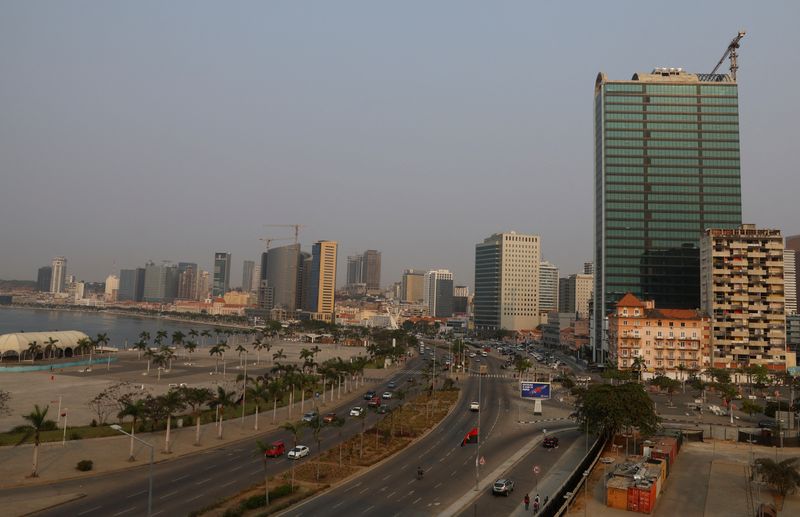LUANDA (Reuters) -Angola's government anticipates a budget deficit of 1.65% of gross domestic product in 2025, slightly higher than this year's projected 1.46% deficit, draft budget documents showed.
The draft 2025 budget of Africa's second-largest crude oil exporter is based on a $70 a barrel oil price, according to the documents posted on the finance ministry's website. Brent crude futures were trading around $74 a barrel on Friday.
Angola's finance minister Vera Daves de Sousa told Reuters last week that the prospect of lower oil prices was putting a lot of pressure on the southern African country.
The draft budget also sees economic growth accelerating to 4.1% next year from 3.3% this year, with faster growth predicted for non-oil sectors.
External financing needs are seen at 7.09 trillion kwanzas ($7.80 billion) in 2025, up from the 6.17 trillion seen in 2024. Internal financing needs are estimated at 7.55 trillion kwanzas, up from 3.83 trillion this year.
The finance ministry estimates annual inflation will end next year at 16.6%, from over 29% currently.
Daves de Sousa told Reuters last week that Angola was considering requesting a financing programme from the International Monetary Fund.

Its most recent IMF programme was for $3.7 billion, approved in 2018 after global crude prices tanked, decimating the country's revenues.
($1 = 909.0510 kwanzas)
